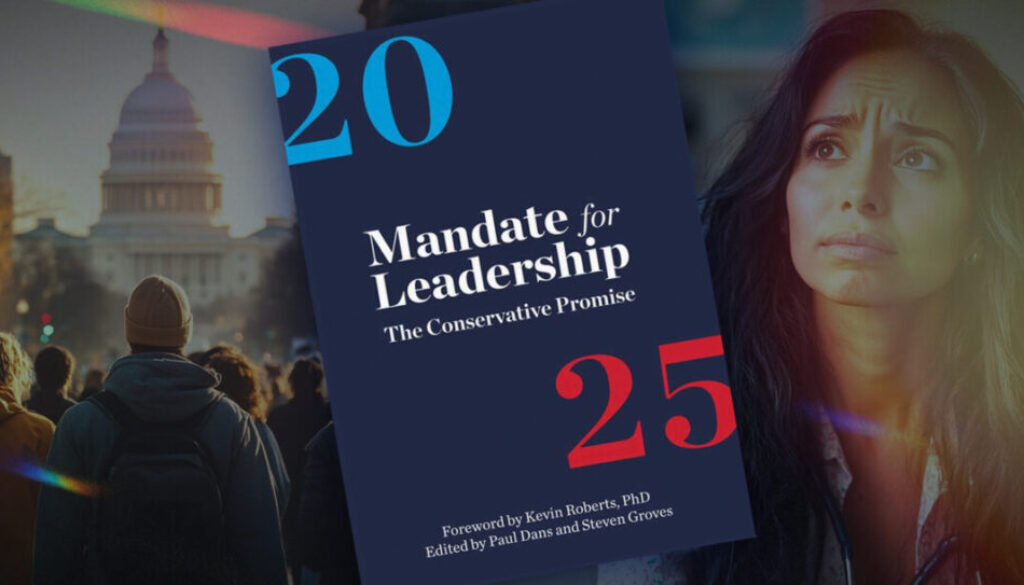Project 2025 and the elections: What would they mean for health care?
Project 2025, also known as the 2025 Presidential Transition Project, is a political initiative published by the Heritage Foundation that aims to promote conservative policies to reshape the federal government.
What would it mean for health care? A panel of experts discussed the implications in several key areas – abortion, Medicare, Medicaid, the Affordable Care Act, the Inflation Reduction Act and LGBTQ+ health programs – during a webinar from the University of Southern California Center for Health Journalism.
In its 900-page document, Project 2025 details a plan to reduce federal government involvement in health and social policies. Key points included proposals to eliminate federal agencies, gut LGBTQ+ health programs, and restrict reproductive care and gender-affirming care. The plan advocates capping Medicaid spending, privatizing Medicare, and repealing the Inflation Reduction Act.
Regarding abortion, Project 2025 would establish “a prolife, politically appointed senior coordinator of the Office of Women, Children and Families,” said Sarah Owermohle, Washington correspondent for STAT. In addition, the project calls for appointing “an unapologetically prolife person in the U.S. Agency for International Development to track reproductive care messaging and abortion services.”
Project 2025 calls for the Centers for Disease Control and Prevention to track abortions, the method used to perform them, and the state that a woman came from, Owermohle said. “So if she traveled to another state with fewer restrictions, it would have CDC more closely track those things, and it would, ‘use every available tool, including the cutting of funds, to ensure that every state reports exactly how many abortions take place within its borders, at what gestational age of the child, for what reason the mother state of residence, and by what method.’”
Protections on gender identity and sexual orientation also would be rolled back in Project 2025, she said. It also would abolish the White House Gender Policy Council, which was established by President Joe Biden in 2021.
Project 2025 would impact Medicaid and Medicare
Medicaid and Medicare would undergo some changes if Project 2025 is enacted, Owermohle said.
“The document says, ‘In essence, our deficit problem is a Medicare and Medicaid problem.’”
Project 2025 calls for converting Medicaid to a block grant program, which would be flat funding for states, she said. “It would potentially be a cost save for the federal government but there would be issues as far as the changes that happen in Medicaid, the changes in enrollment, the changes in the populations of states.”
One way that Project 2025 would impact Medicare would be to have Medicare Advantage be the default program for people turning 65 and enrolling in Medicare, she said, although the plan doesn’t go into detail about how that would be done.
Project 2025 also calls for repealing the Inflation Reduction Act, which permits the federal government to negotiate Medicare prescription drug prices and implements a $2,000 annual out-of-pocket spending cap on Medicare enrollees.
The election’s impact on health care
The 2024 presidential election has dominated the news, but every member of the U.S. House of Representatives and one-third of the U.S. Senate is up for election in November as well. What can we expect on the health care front after the election? Drew Altman, president and CEO of KFF, gave some predictions.
Medicaid and the ACA could be targeted by a new Congress and a Republican administration, he predicted.
“There will be a major assault on the Medicaid program, as well as parts of the ACA such as diluting some of the coverage provisions and diluting but not eliminating protections for people with preexisting conditions,” he said.
Medicaid covers 82 million Americans, Altman said, and is the largest source of federal funding for the states. It is the primary source of insurance coverage, long-term care coverage and coverage for people with disabilities. In addition, Medicaid pays for half of the babies delivered in most states. But Altman said he believes several factors put Medicaid in Republicans’ crosshairs.
“Republicans are not going to want to cut Social Security and Medicare, because as soon as the election is over, that’s when midterms start to start to loom, and they’re not going to want to give the Democrats a powerful issue to hit them over the head with for the midterms,” he said. “But they desperately need savings to pay for their tax cuts, and the only other big program to cut is Medicaid.”
The way Medicaid is viewed also determines whether someone in Washington believes it should be cut, Altman said. Some lawmakers view it as welfare assistance while others view it as insurance.
“When you see it as welfare, you’re more likely to want to cut it or impose restrictions such as work requirements on it. If you see it instead as insurance coverage, as part of a continuum of coverage in our country, you’re more likely to want to protect it or even expand it.”
A lot depends on Congress
“I don’t know if there’s a huge appetite” on Capitol Hill for repealing the ACA, said Victoria Knight, health care reporter for Axios. She pointed to the 2018 midterm elections, when Republicans lost their House majority thanks to their support of getting rid of the health care law.
“The ACA has become even more ingrained in our system since then,” she said, making it less likely that there is support for abolishing it.
But the enhanced ACA subsidies that make it easier for more people to obtain coverage could be another matter, Knight said. Those subsidies were enacted as part of the Inflation Reduction Act and are scheduled to expire next year unless Congress acts to extend them.
Republicans want to let them expire, she said, while Democrats want to extend them.
If Congress is split, with one party controlling the House and the other controlling the Senate after the Nov. 5 election, we could see some negotiation, she said. One issue facing Congress will be whether to extend the individual income tax cuts that were enacted with the Tax Cuts and Jobs Act of 2017. Those tax cuts will expire in 2025 unless Congress acts.
“So there’s already a lot of buzz around the possibility of if there’s a split Congress, kind of swapping those policies. Democrats get what they want, which are extending the enhanced subsidies, which have allowed a lot more people to access ACA health insurance at a pretty low premium, and then Republicans will get what they want, which are extending these tax cuts. That obviously would require a lot of negotiation to make that a reality, but it is seemingly a possibility that a lot of people are talking about at this point.”
© Entire contents copyright 2024 by InsuranceNewsNet.com Inc. All rights reserved. No part of this article may be reprinted without the expressed written consent from InsuranceNewsNet.com.
The post Project 2025 and the elections: What would they mean for health care? appeared first on Insurance News | InsuranceNewsNet.




